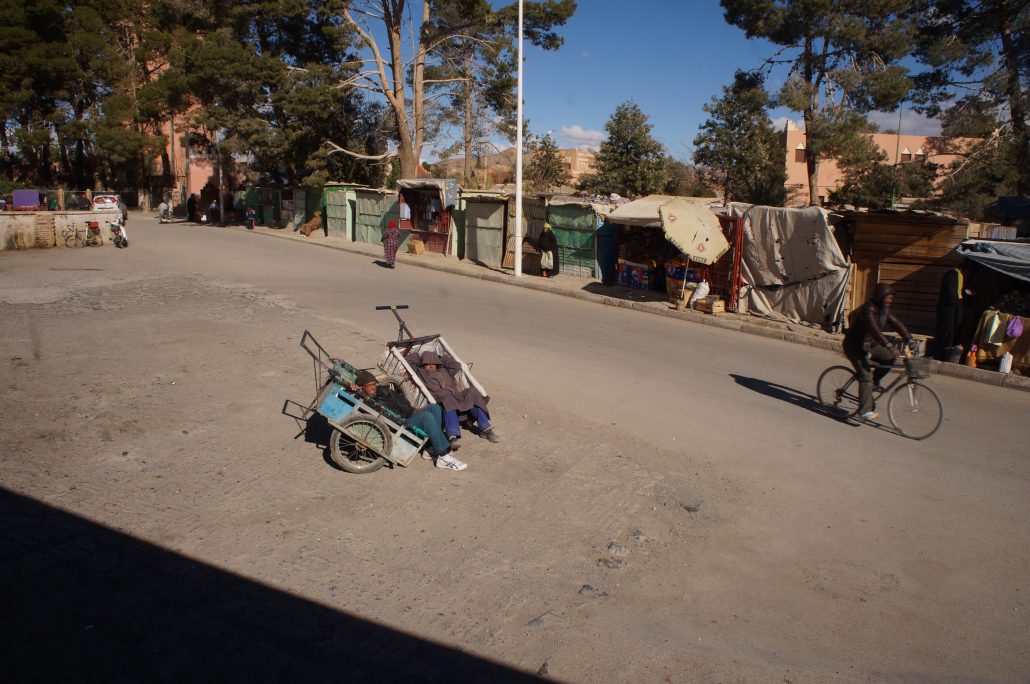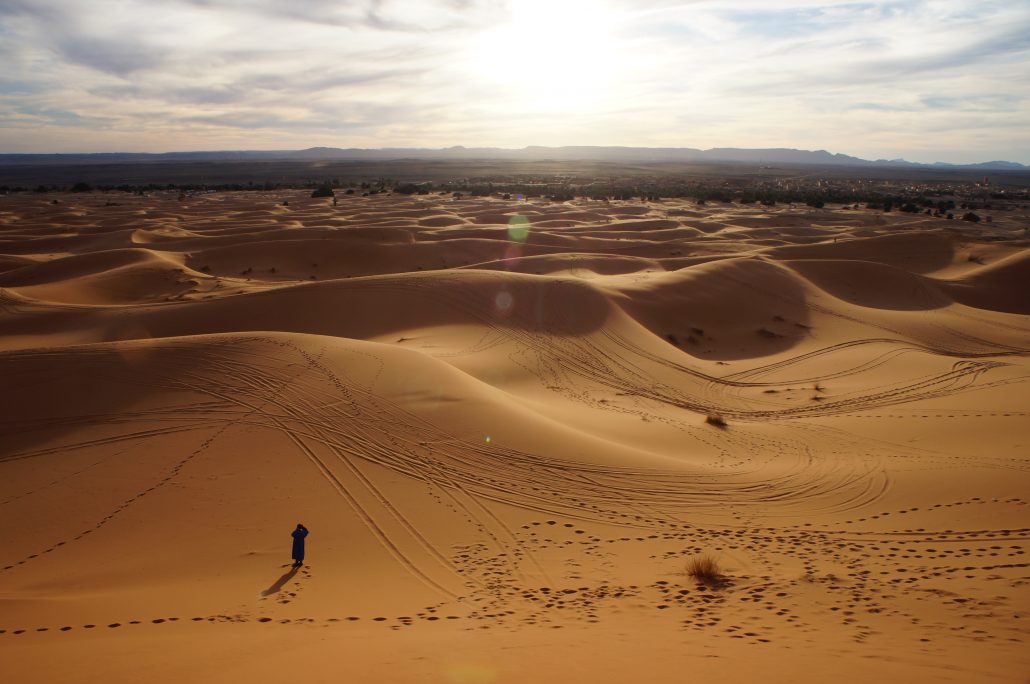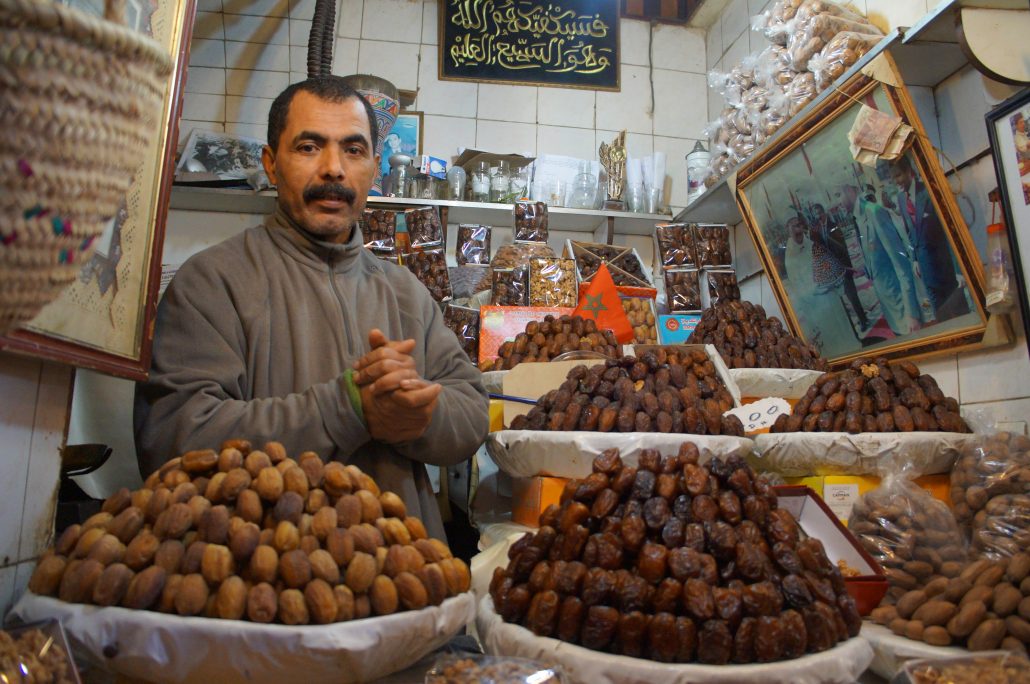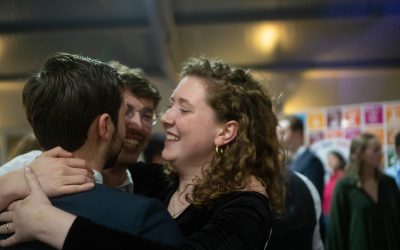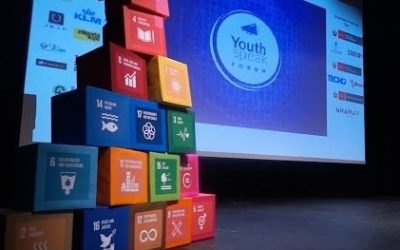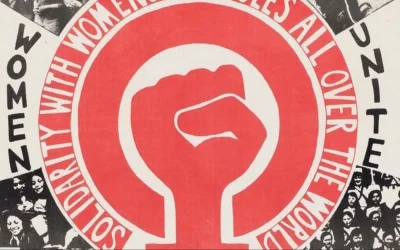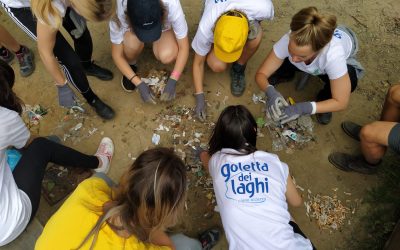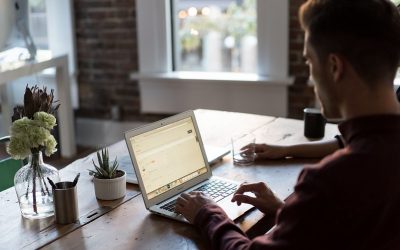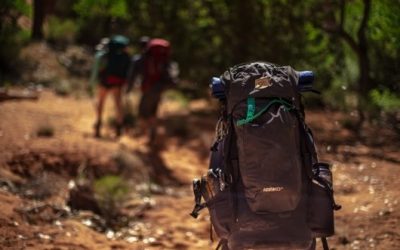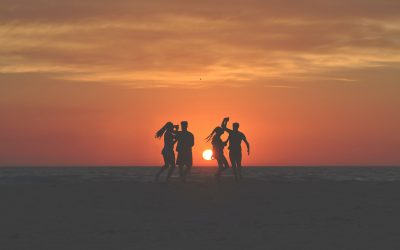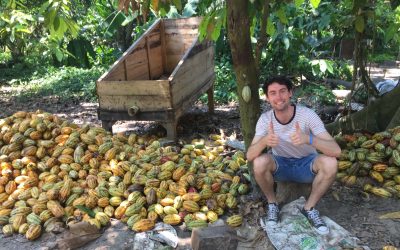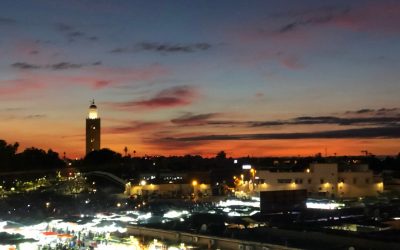Marokko lijkt geen haast te kennen. Op straat bewegen mensen zich op hun gemakje vooruit. Langzaam, al kletsend met gezelschap gaan ze op weg naar hun bestemming. Vaak komen mensen later op afspraken dan afgesproken. De enkelen die op tijd komen lijken niet gefrustreerd te zijn door de laatkomers. Ze vullen de tijd wel met iets anders. En zo gaat alles hier op een gemakje. Wat vandaag niet komt, komt morgen wel. Als je zegt ‘ik zie je om vijf uur’, antwoordt een ander met ‘inshallah’, wat betekent ‘als god het wil’. Mensen plannen niet zo precies. Je weet namelijk maar nooit wat er de rest van de dag zal gebeuren. Misschien duurt alles wel langer dan je verwacht had, of is de bus later, of komt de bus helemaal niet. Zelfs schooltijden zijn niet zo stipt. Als de les om tien uur gepland staat begint het waarschijnlijk tussen kwart over tien en half elf.
Toen ik net in Marokko was kon ik me er wel aan ergeren als de meeting weer eens werd gecanceld, of als de enige activiteit van de dag was het maken van plannen voor later. Het mocht van mij wel iets actiever en productiever. Na een tijdje merkte ik dat ik vooral mezelf in de weg zat met deze haast. Andere mensen werden niet sneller en zelf kon ik maar weinig aan de situatie veranderen. Langzaam probeerde ik me aan te passen en een Marokkaanse houding aan te nemen te nemen. Ik geloof dat het me steeds beter afgaat. Een dag hoeft niet altijd productief te zijn. Als je de tijd neemt voor wat je aan het doen bent creëert dat veel rust. De mensen die ik in de woestijn heb ontmoet leken dit als leefregel te hebben. Ze namen volop de tijd voor hetgeen ze mee bezig waren. Niet tegelijkertijd met een half oog op een smartphone of al met één been in de richting van het volgende, zoals ik in Nederland mensen maar wat vaak zie doen. Nee, de mensen in de woestijn spraken en luisterden met volledige aandacht. Ze hadden daar misschien niet zoveel geld, maar ze hadden wel alle tijd. En als je het mij vraagt, maakte dat hen heel rijk. Tijd is een van de meest waardevolle dingen die je hebt. Wat nu is, is het enige wat zeker is. Daarom lijkt het me zonde om snel op weg te gaan naar het volgende.
Maar waarom vind ik het zo moeilijk om mijn focus in dit moment te houden? De ervaring van tijd zit diep ingebakken in mensen. Volgens een theorie, die een man in Marokko me laatst vertelde, is de beleving van tijd beïnvloed door het klimaat. Mensen in koude gebieden moesten van oudsher zich voorbereiden op de kou. Denken aan de toekomst is hierbij een voorwaarde om te kunnen overleven. In relatief warme gebieden zonder extreme weersomstandigheden, was het niet nodig om op die manier te plannen. Dus ik heb volgens deze theorie mijn focus op de toekomst te danken aan mijn voorouders. En ook al leer ik hier veel geduld te hebben in Marokko, en ben ik van plan minder plannen te gaan maken, toch merk ik dat ik een Noorderling ben en blijf. Na vijf weken in Marokko te zijn geweest heb ik wel zin om weer thuis te zijn en met mensen af te spreken die op tijd komen.
This post was written by Janneke Jolink. Janneke went on an exchange with AIESEC in the Netherlands. We offer international voluntary projects and professional internships with the aim of developing leadership in youth. .

